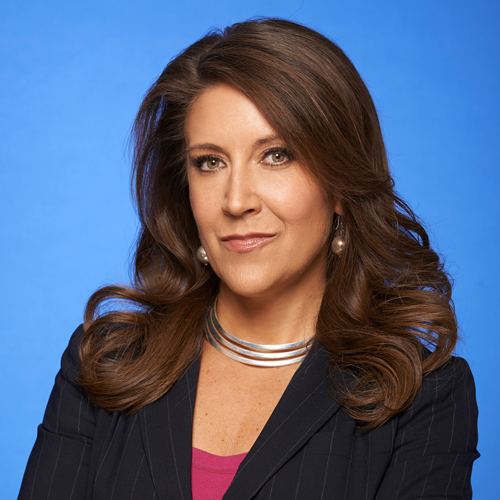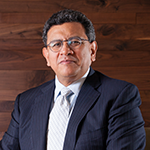Experts say that children model their parents’ behavior, and Cynthia Telles is living proof of the idea. Her father, Raymond Telles, served with the Air Force in World War II and the Korean War, and was later elected county clerk in El Paso, Texas. In 1957, he became the first person of Hispanic origin to serve as mayor of a major US city when he was elected in El Paso. Four years later, President Kennedy sent him to Costa Rica as our nation’s first Hispanic ambassador.
The maternal side of Telles’s family is equally impressive. During the early 1900s, her great grandmother served the poor, the marginalized, and the disabled as a minister, midwife, and nurse. She opened and ran an orphanage in Juarez, where Telles’s grandmother would later take her to volunteer. That experience, along with watching her father’s public service, had a profound effect on the young Latina. “I learned by example that serving others not only defines our humanity, but fulfills our responsibility to each other and strengthens the social fabric,” Cynthia Telles says. “It deeply impacted my life’s work and commitment to community and public service.”
Telles has continued the family legacy of service. In 1986, she joined the faculty of the Department of Psychiatry at the University of California in Los Angeles School of Medicine where she is director of a Spanish-speaking psychiatric training clinic. For the past few decades, she served on the boards of numerous national and local nonprofit and philanthropic organizations, including the California Community Foundation, which she currently chairs. Since the 1990s, Telles has been appointed to many federal, county, and city commissions. In 2010, President Obama appointed her to the White House Commission of Presidential Scholars.
For the last couple of decades, Telles has also served on various corporate boards in the banking, health care, transportation, and automobile industries, including her current service as a director of Kaiser Foundation Health Plan and Hospitals (Kaiser Permanente) and General Motors.
While all of this activity may suggest that Telles has carefully groomed herself for boardroom positions, she says board service was never an aspiration during her early career. “Though it has proved to me extremely rewarding in so many ways, finding myself in the boardrooms of corporate America was not something I planned,” she remarks. In fact, one could trace her career path and her spot in the boardroom back to a mosquito bite. At age 10, Telles contracted viral encephalitis and was given just three days to live. After patients and kind nurses aided in her remarkable recovery, Telles devoted her time to improving the lives of others. She returned to Costa Rica shortly thereafter and started volunteering in a children’s hospital. A lifelong passion for service was born.
During college, Telles went on to work as an intern at the National Institute of Mental Health where renowned deputy director Dr. Juan Ramos became her mentor. While reviewing literature on Hispanic mental health, Telles had an epiphany. “I was documenting the need for a legislative amendment to mandate the provision of linguistically proficient mental-health services to persons from diverse backgrounds,” she recalls. “And I realized that Hispanics with mental disorders were severely underserved due to the lack of culturally competent mental health professionals.” The issue became Telles’s new focus.
After receiving a BA from Smith College, Telles completed a doctorate in clinical psychology at Boston University. “My concern regarding the severe underutilization of services by Hispanics inspired me to become a psychologist and fueled my commitment to provide services to diverse populations and to train a cadre of mental-health professionals for the same purpose,” she says. In 1980, Telles accepted a position to direct the Spanish-Speaking Psychosocial Clinic of the Neuropsychiatric Institute and Hospital at UCLA, where she trains psychiatrists, psychologists, and social workers who provide services mainly to low-income, Spanish-speaking immigrants.
Telles’s career as a board member started in the nonprofit and community sector with groups such as the National Alliance for Hispanic Health, the Public Policy Institute of California, and the California Endowment. “In treating low-income patients, it became increasingly clear to me that many of their mental-health issues were directly related to environmental factors that impacted the quality of their lives, including poverty, poor housing, and underemployment,” she says. “Effective solutions called for more comprehensive interventions, not only at the individual level, but in the concentric circles of family, community, and public policy.”
That work raised her profile in the public sector and led to several government appointments, including her positions as vice president of the City of Los Angeles Ethics Commission, president of the Women’s Commission, vice president of the Library Commission, and member of the Children and Families Commission. She was recently appointed by the mayor to the City of Los Angeles Board of Airport Commissioners.
During the early 1990s, Telles’s growing prominence in the city led Sanwa Bank to recruit her to its board of directors. The bank wanted to expand its role in California, and Telles contributed to shaping its community reinvestment and fair-lending programs. From there, she went on to board positions with Burlington Northern Santa Fe Corporation and Americas United Bank, and she has served on the board of the new General Motors during its recent recovery starting in 2010. “It was critical, not only to restore the profitability of the company, but also to regain the trust of the American people in our ability to compete and succeed as the world’s largest automobile manufacturer,” she says. Telles serves on the finance and public policy committees of the GM board.
Telles has also served for a decade on the board of Kaiser Foundation Health Plan and Hospitals, where she chairs the community benefit committee and is also a member of the audit and compliance committee and executive committee. Kaiser, an integrated health-care organization, was attractive to Telles for its efforts to expand access to quality care while improving the health of local communities.
Despite her many accomplishments, Telles says she doesn’t “even come up to the heels” of the family members who went before her. She does hope, however, that she can pass on their firmly held values to others, including her son and students. “Our humanity is best defined by service to others—in our families, workplaces, and communities,” she says. “We are all part of the social fabric and must assume responsibility for each other. We should strive to ensure that we have made a difference in improving the lives of others.”
Telles never would have predicted she’d wind up in the country’s top boardrooms, but now that she’s there, she is committed to good corporate governance and to helping companies effectively serve their communities as well as their shareholders.

